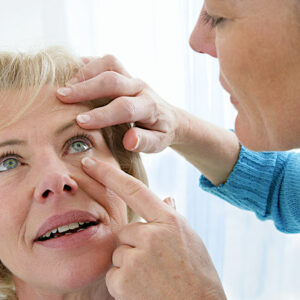4 Important Vitamins for Optimal Eye Health

Maintaining good eye health is vital to ensure clear sight and lasting vision. However, many are not aware of the crucial role nutrition plays in keeping one’s eyes healthy. Eating certain healthy foods is an easy and effective way to promote good eye health. Certain vitamins in your foods are eye-friendly and help fight severe eye disorders. Read further to learn about the key vitamins essential for maintaining healthy eyes.
Importance of maintaining eye health
Vision
Your eyes are your primary source of vision, and maintaining eye health is essential to preserve this sense. Regular eye exams and healthy habits such as safeguarding your eyes from UV rays, taking breaks when using electronic devices, using dry eye drops, and healthy eating habits can ensure eye health.
Quality of life
Good eye health can significantly improve your quality of life. It enables you to efficiently perform everyday tasks such as driving, reading, and watching TV. Maintaining good eye health can also prevent falls and other accidents.
Detection of health problems
Your eyes can reveal much about your overall health. For example, during an eye exam, an optometrist or ophthalmologist can detect signs of chronic diseases such as diabetes, high blood pressure, and multiple sclerosis.
Prevention of vision loss
Certain eye disorders, such as cataracts, glaucoma, and age-related macular degeneration, can lead to vision loss or blindness. However, regular eye exams can prevent or treat many diseases if diagnosed early.
Productivity
Good eye health is essential for maintaining productivity at work and home. Eye strain and other vision problems can lead to decreased efficiency, affecting your work performance and ability to complete daily tasks.
Vitamins that contribute to healthy eyes
Vitamin A
Vitamin A is essential for maintaining eye health and helps protect the eyes’ delicate surface. Its vital role is to protect the cornea against irritation, infection, and dehydration. It also helps support night vision and defends against damage by free radicals so that the eyes can function properly in low light. Moreover, vitamin A aids the production of enzyme systems needed by the cornea to produce tears, helping prevent dry eyes.
You will find several natural foods rich in Vitamin A, such as carrots, kale, dark leafy greens, sweet potatoes, and butternut squash. Moreover, an optometrist may prescribe vitamin A supplements for weak eyesight due to a deficiency. Maintaining eye health with regular vitamin A intake can keep one’s vision strong and vibrant.
Vitamin B
Vitamin B helps maintain eye health in the following ways:
- Vitamin B1 (Thiamine) : Thiamine is essential for maintaining the cornea’s health. A thiamine deficiency may lead to vision problems such as blurred vision.
- Vitamin B2 (Riboflavin) : Riboflavin is essential for maintaining healthy eyes and good vision. It helps maintain the antioxidant glutathione levels in the eyes, which can prevent age-related eye diseases such as cataracts.
- Vitamin B3 (Niacin) : A severe niacin deficiency can lead to pellagra (a form of malnutrition), which may cause vision problems.
- Vitamin B6 (Pyridoxine) : Pyridoxine is important for producing hemoglobin, the protein in red blood cells that carries oxygen throughout the body. It is crucial for maintaining the retina’s health and proper blood flow to the eyes.
- Vitamin B9 (Folate): Folate is crucial for preventing homocysteine which damages blood vessels in the eyes and increases the risk of age-related macular degeneration.
- Vitamin B12 (Cobalamin) : Cobalamin is crucial for maintaining the health of the optic nerve, which transmits visual information from the retina to the brain. A cobalamin deficiency can lead to optic neuropathy, which can cause vision loss.
You can find various forms of Vitamin B in broccoli, chickpeas, Brussels sprouts, spinach, and kale.
Vitamin C
Vitamin C is essential for healthy eyes. It provides antioxidant protection and plays a vital role in the production of collagen, which is the structural foundation of your eye. By eating foods like oranges, peppers, and broccoli that are rich in vitamin C, you can help maintain the structural integrity of your eyes. In addition, vitamin C may help protect against age-related vision problems such as cataracts and macular degeneration. It is because it can neutralize free radical molecules that damage cells throughout your body, including those in your eyes.
Furthermore, vitamin C also assists in absorbing light that passes through the retina. It helps your vision by permitting you to see colors more vividly. Finally, it can reduce intraocular (eye fluid) pressure when taken with other minerals, helping glaucoma patients. Ultimately, it’s important to remember that getting adequate vitamin C from fruits and vegetables daily can help ensure your eyes stay healthy for years.
Vitamin E
Vitamin E is a naturally occurring fat-soluble compound in many foods that actively supports and sustains vital parts of the human body, including the eyes. A nutritional regime high in vitamin E, a strong antioxidant, ensures one’s eyes are safe from damage induced by free radicals. Additionally, vitamin E may help protect against conditions such as age-related macular degeneration and cataracts. Incorporating nuts, legumes, and vegetable oils rich in vitamin E into your meal can ensure optimal eye health.
Since eye-related disorders can affect people of any age, optimal eye health should be prioritized. Changing one’s nutritional regime by incorporating more foods rich in vitamins A, B, C, and E will help reduce the risk of many common ocular problems. Supplements or foods containing these essential compounds can help ensure the body receives enough nutrients and can form part of a preventative plan. Furthermore, wearing protective eyewear when attending activities and using dry eye drops may help ensure good eye health. Besides nutritional habits, maintaining a healthy lifestyle is also crucial for healthy eyes. It is also advised to get one’s eyes examined regularly by a professional to rule out the possibility of any chronic conditions.











